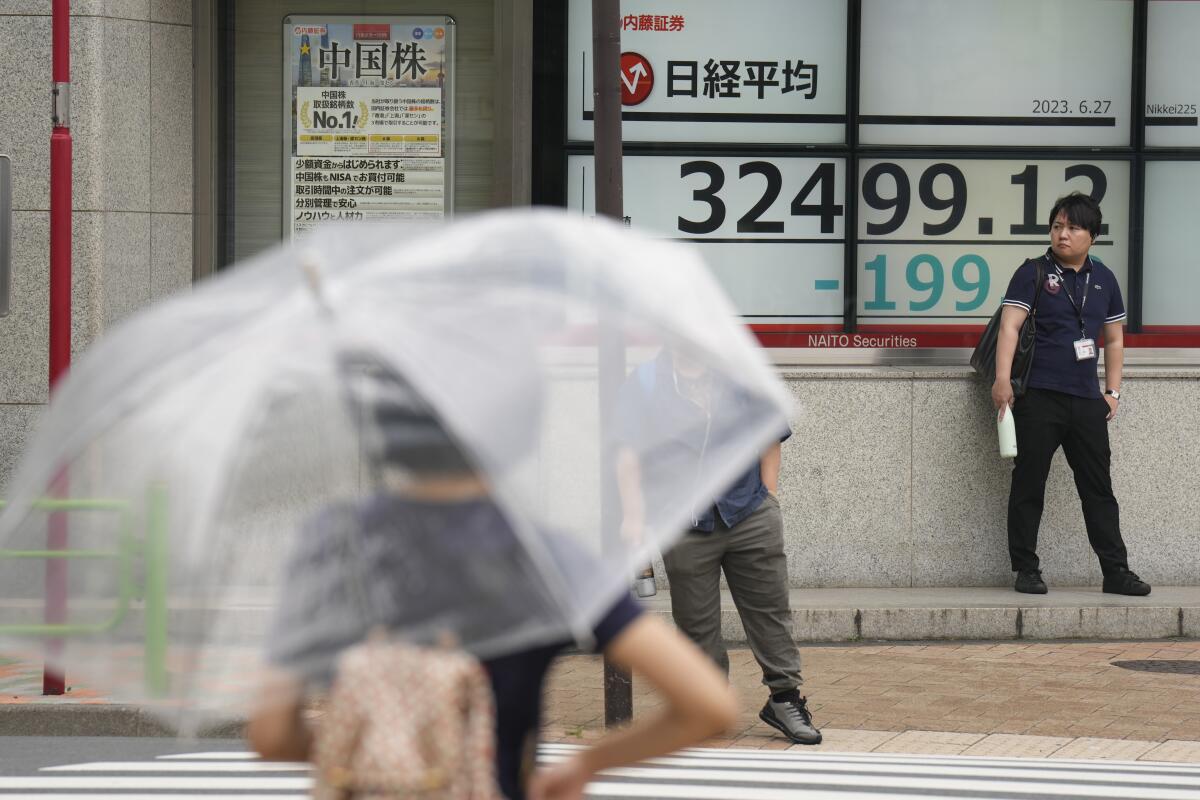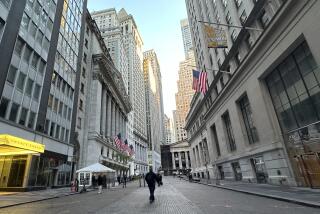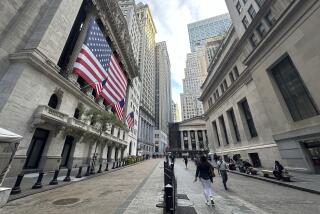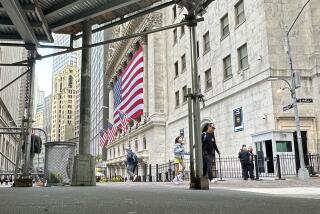Wall Street rises as economy holds up better than feared

Wall Street rallied Tuesday after a round of reports suggested that the economy is in better shape than feared.
The Standard & Poor’s 500 rose 1.1% to resume an upward climb that had carried it earlier this month to its highest level in more than a year. The Dow Jones industrial average rose 212 points, or 0.6%, while the Nasdaq composite gained 1.6%.
Airlines helped lead the way after Delta Air Lines said it still sees pent-up demand in the pipeline as passengers make up for lost opportunities to travel during the pandemic. It highlighted high-income customers in particular, who account for three-quarters of spending on air travel and still look to be in good financial shape despite high inflation.
Delta’s stock took off by 6.8% after it said earnings this year should come in at the top end of the range it had earlier forecast. American Airlines climbed 5.5%, and United Airlines rose 5.1%.
Big-tech stocks were also strong, continuing a run this year spurred by excitement around artificial-intelligence technology. Nvidia, at the center of the AI frenzy, rose 3.1% to vault its gain for the year so far to 186.5%.
High inflation is hurting other companies more directly, though. Walgreens Boots Alliance dropped 9.3% after it reported weaker profit for the latest quarter than analysts expected. The retail pharmacy company also cut its forecast for earnings this fiscal year, saying customers have become more cautious in their spending and are looking for more value amid high inflation.
Lordstown Motors sank 17.2% after the electric pickup truck company filed for Chapter 11 bankruptcy protection. It had warned in early May that it was in danger of failing due to a dispute with electronics company Foxconn, which was wavering on a $170-million investment in the startup company.
The U.S. stock market has been on a tear this year despite much higher interest rates meant to get inflation under control, in part because the economy has so far managed to avoid a recession. But many investors are just delaying their predictions for the start of a recession rather than cancelling them.
Reports on the economy Tuesday were largely stronger than expected. A reading on consumer confidence jumped to its highest level since the start of 2022, and orders for long-lasting manufactured goods unexpectedly grew, beating economists’ forecasts for a pullback.
Sales of new homes in May also topped economists’ expectations, which sent stocks of homebuilders climbing. Lennar rose 4.1%, and Toll Brothers climbed 3.3%.
A measure of manufacturing activity in the Richmond, Va., region stretching from Maryland to South Carolina contracted, but not by as much as economists feared. Manufacturing has been one of industries hardest hit by much higher interest rates.
All the economic data will feed into decisions by the Federal Reserve and other central banks about whether to keep cranking interest rates higher. High rates can undercut inflation, but they do so by slowing the entire economy and raising the risk of a recession.
Christine Lagarde, the head of the European Central Bank, warned Tuesday that inflation is declining slowly and pledged to raise rates high enough “to break this persistence.” She once again made it seem nearly certain that the central bank will raise rates again in July.
That’s also the expectation for the Federal Reserve. But the hope on Wall Street is that a hike next month could be the final one for the Fed, even if it has suggested recently that it could raise rates twice more this year.
Traders have largely given up on hopes of multiple cuts to interest rates in 2023, something that many were predicting earlier this year.
“We believe central banks have more work to do,” said Andrew Patterson, senior international economist at Vanguard. “We’ve always said inflation wouldn’t come down magically, even as post-pandemic supply chain issues were resolved.”
All told, the S&P 500 rose 49.59 points to 4,378.41. The Dow climbed 212.03 to 33,926.74, and the Nasdaq added 219.89 to 13,555.67.
In Asian markets, stocks in Shanghai rose 1.2%. China’s No. 2 leader, Premier Li Qiang, said economic growth has accelerated and can hit this year’s official 5% target. Li, speaking at a conference, gave no growth rate for the latest quarter but said it is faster than the previous quarter’s 4.5%.
Stocks also jumped 1.9% in Hong Kong, though they were more muted elsewhere in Asia and across Europe.
In the bond market, the yield on the 10-year U.S. Treasury rose to 3.76% from 3.72% late Monday. It helps set rates for mortgages and other important loans.
The two-year Treasury yield, which moves more on expectations for the Fed, rose to 4.76% from 4.74%.
More to Read
Inside the business of entertainment
The Wide Shot brings you news, analysis and insights on everything from streaming wars to production — and what it all means for the future.
You may occasionally receive promotional content from the Los Angeles Times.










